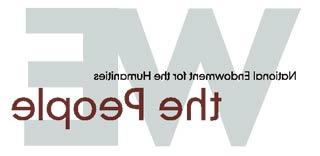The Second Continental Congress
Introduction
The First Continental Congress adjourns on 26 October 1774, but delegates resolve to reconvene in May 1775 if Parliament does not address their grievances. Delegates return to their respective colonies and play a vital role in ensuring that Congress's mandates are implemented. In London, Parliamentary factions debate the merits of offering concessions to the colonies, although the British ministry takes no official notice of Congress's petitions and addresses. On 30 November 1774, "the die is cast" when King George III opens Parliament with a speech condemning Massachusetts and the Suffolk Resolves. It is clear that Congress will need to meet again.
War breaks out in Massachusetts on 19 April 1775. Many delegates are already en route to Philadelphia, where Congress convenes on 10 May 1775. Notable additions include Benjamin Franklin, John Hancock, and Lyman Hall, the lone delegate representing a single parish in Georgia. In Massachusetts, the Provincial Congress, formed when military governor Thomas Gage dissolved the legislature in 1774, needs advice. Arguing that "General Gage hath actually levied war" against them, Massachusetts patriots hope Congress will suggest a mechanism for creating a civil government to manage the colony.
Congress resolves to prepare for war but continues to seek reconciliation. Unwilling to completely abandon their hope for peace, Congress extends an olive branch to the king through another petition, approved in July 1775. William Penn carries the document to London, but the king refuses to see him. Instead, the king issues a proclamation on 23 August declaring America to be in a state of "open and avowed rebellion."
Petitions and declarations stir up patriotic sentiment, but that alone will not win the war. Hoping to win Canada as an ally—and thereby eliminate a potential route of invasion for the British—Congress urges the "oppressed inhabitants of Canada" to join the American cause and send delegates to Congress. Meanwhile, the Battle of Bunker Hill on 17 June 1775 forces many delegates to rethink their position on reconciliation. As accounts of the battle reach Philadelphia, Thomas Jefferson and John Dickinson are drafting the Declaration of the Causes and Necessity for Taking up Arms. John Adams calls the document a spirited Manifesto.
On 14 June, Congress creates a continental army and appoints George Washington commander-in-chief. Before sending Washington to Boston to meet the troops in July, Congress adopts a comprehensive set of military regulations designed to marshal the troops. How will Congress pay for its new army? On 22 June 1775, it approves the first release of $1 million in bills of credit (paper currency). Issued in defense of American liberty, Congress authorizes the printing of another $1 million in July. (By the end of 1775, Congress will authorize a total of $6 million bills of credit.) After a flurry of activity in June and July, Congress adjourns for a brief respite on 2 August 1775.
When the body reconvenes on 13 September, three new delegates representing the entire colony of Georgia are present. As Congress continues to mobilize for war, delegates also debate the possibilities of foreign assistance and the "intricate and complicated subject" of American trade. In February 1776, Congress receives news of the Prohibitory Act, which subjects all American vessels to confiscation by the Royal Navy. In March 1776, Congress sends a message of its own to British shipping interests: enemy vessels beware!
Opposition to independence is steadily waning in Congress, thanks in part to the popular support. Common Sense is published in Philadelphia in January 1776. Offering "simple facts, plain arguments, and common sense," the pamphlet is a publishing success that stirs debate on the subject of independence.
Throughout 1775 and 1776, many colonies form their own provincial congresses or conventions. Given their expanding roles in the face of war these bodies need more legal authority to be effective. As Massachusetts had done in 1775, individual colonies seek the advice of Congress. John Adams explains his own opinions on the "divine science of politicks" and the most advantageous structure of government in the pamphlet Thoughts on Government. On 10 May 1776, Congress passes a resolution allowing each colony to create a new provincial government. On 15 May, a pesky preamble is added to the measure. John Adams dutifully records the debate in his diary.
Many delegates fear their actions—such as the creation of new civil governments and the search for potential foreign allies—are tantamount to declaring independence. By June, delegates will be considering a resolution on the matter of independence itself.
List of supporting documents:
Rowe's Revolution
"This day the King's Speech is come to Town from Marblehead ... he takes notice of the Behaviour of the Colonies & particularly this Province -- his Remarks are very Just."
Diary of John Rowe,
31 January 1775
















